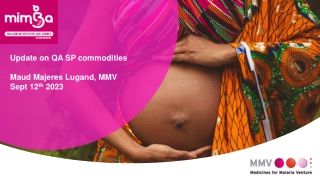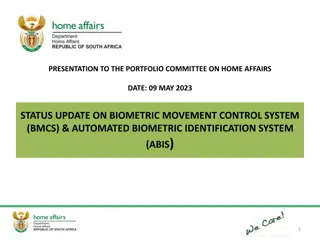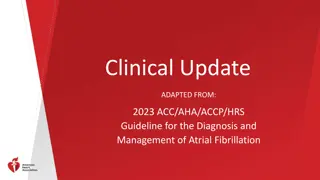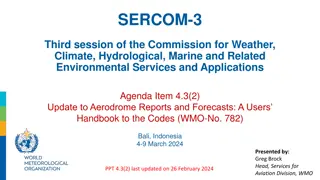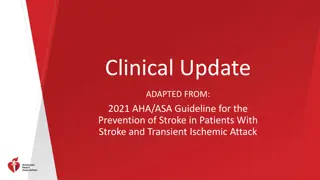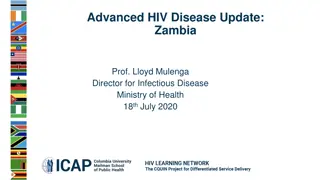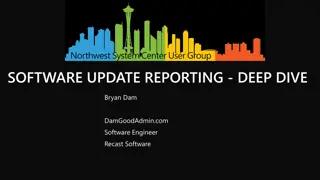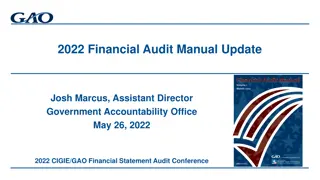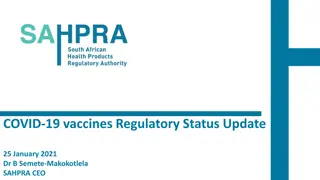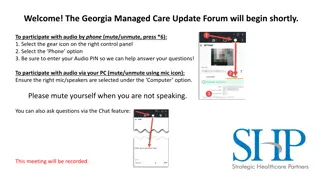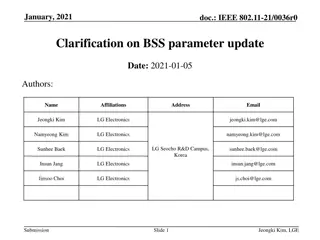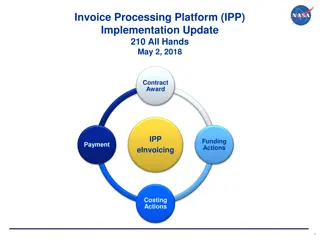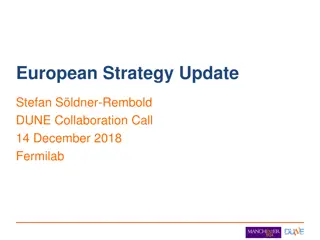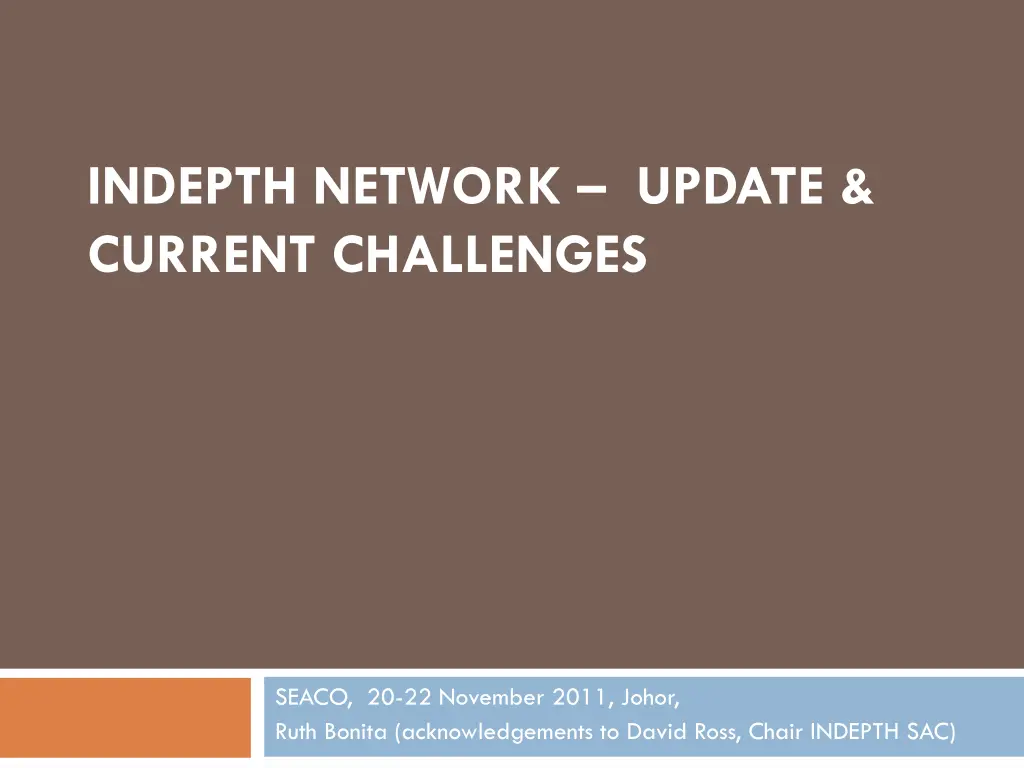
Innovative Health and Demographic Studies Network Updates
Explore the INDEPTH network's initiatives and challenges in conducting health and demographic studies across multiple countries. Discover their focus on data management, research collaboration, and capacity strengthening for impactful research outcomes.
Download Presentation

Please find below an Image/Link to download the presentation.
The content on the website is provided AS IS for your information and personal use only. It may not be sold, licensed, or shared on other websites without obtaining consent from the author. If you encounter any issues during the download, it is possible that the publisher has removed the file from their server.
You are allowed to download the files provided on this website for personal or commercial use, subject to the condition that they are used lawfully. All files are the property of their respective owners.
The content on the website is provided AS IS for your information and personal use only. It may not be sold, licensed, or shared on other websites without obtaining consent from the author.
E N D
Presentation Transcript
INDEPTH NETWORK UPDATE & CURRENT CHALLENGES SEACO, 20-22 November 2011, Johor, Ruth Bonita (acknowledgements to David Ross, Chair INDEPTH SAC)
Overview 42 HDSS in 19 countries in Africa, Asia and Oceania for scientific exchange and technical collaboration All Centres collect core demographic information on vital events (see www.indepth-iSHARE.org) Starter kit is provided to new HDSS to encourage standardisation of data collecting tools Striving towards a common platform for easy and efficient sharing of databases (iSHARE)
Currently 42 centres in 19 countries 29 centres in Africa 12 centres in Asia 1 centre in Oceania Over 3,000,000 people under surveillance
Prospective monitoring of demographic & health events Intervention trials (randomised) Capturing episodes of disease and hospital admission Verbal autopsy for cause of death Measure characteristics of environment or household members (e.g. SES, vaccines, HIV, nutrition)
INDEPTHs Core Business DATA Management, integrity, quality Documentation & standardisation Expand research collaboration Increase public access enables drives SCIENCE Studies using existing HDSS data Multi-site research, trials, evaluation Methodological innovation Collaboration with partner networks strengthens requires requires enables CAPACITY STRENGTHENING Career paths: Masters-interns-PhDs-postdocs Research data management
What INDEPTH does Supports and strengthen the ability of INDEPTH member centres to conduct longitudinal health and demographic studies in defined populations. Facilitates the translation of INDEPTH findings to maximise impact on policy and practice. Facilitates and supports research capability strengthening relevant to INDEPTH activities. Stimulates and co-ordinates multi-centre applications to research funding bodies for specific research activities.
Key Progress Important progress includes: Basic demographic data submitted by 33 HDSSs to Secretariat by September 2011 Development of excellent INDEPTHStats interface Development of clear scientific and data sharing vision and strategy (eg. Wellcome Trust Strategic Award Proposal)
Current funders Sida/GLOBFORSK Hewlett Foundation Gates Foundation Wellcome Trust DANIDA IDRC Health Metrics Network European Union Rockefeller Foundation
A wide range of interaction Working Groups 2. Interest Groups Household dynamics Newborn health & epidemiology, Social autopsy, Vaccine safety, 1. Adult health & ageing, Antibiotic resistance, Cause of Death, Climate change Ethics, Fertility Health & demographic transitions, Health systems, Indoor air pollution, Mental health & neurology, Migration & urbanization, Mortality analysis & INDEPTHStats, Sexual & reproductive health, TB, Vaccination & child survival
Case study: Risk factors for chronic non-communicable disease: the burden in Asian INDEPTH HDSS Supplement 1, 2009 in Global Health Action, on line journal (www.globalhealthaction.net) 8 HDSS worked collaboratively Efficient Data manager provided leadership Translating research into action 9 papers published Capacity building
Current challenges Importance of leadership of the working and interest groups Need to focus on the core business of INDEPTH Restricted funding and human resources even for core business and support for secretariat Ethics of demographic surveillance (eg. related to data use and sharing) have some specific issues due to longitudinal nature Senior staff to establish data management systems Quality assurance Accreditation
Lessons learned Leadership of the working and interest groups is key Focus on the core business of INDEPTH is essential Restrict funding and human resources to core business Ethics of demographic surveillance (eg. related to data use and sharing) have some specific issues due to longitudinal nature Effective and efficient data management systems linked to demographic expertise are crucial to ensure quality
Current challenges There is scope for further standard-setting and innovative work in methods and measurement strategies, including Development and testing of small area sampling and survey tools, for example, for use at neighbourhood and sub-district levels, in order to generate population data on coverage and health status that district level managers need. Development of real-time, multi-site, evaluation methods. Building inter-operability between population-based HDSS surveillance records and individual electronic medical records.
Current challenges - INDEPTHStats Initially for core fertility and mortality indicators, cause of death and migration indicators will soon follow Data quality needs to be assured Timing for going public (+++) Issues of analytical techniques: Eg Event History analysis technique for checking longitudinal data Need to include identifying events for each individual
Translating research results into action Targeted advocacy and communication Targeted audiences: politicians, policy makers, practitioners, general public Sharing results (iSHARE) and advocacy skills Virtual library with online access to papers as well as data sets Links to open access journals such as Global Health Action Evans T, AbouZhar C. INDEPTH @10: Celebrate the past and illuminate the future. Global Health Action 2008
Conclusion A rare example of a southern-based and led international organisation As a network, is able to add value to the activities of individual (and independent) population surveillance sites Occupies a niche from which some of the world s biggest data holes can be filled Has a good track record in global health research (e.g. participation of 4 sites in the recent malaria vaccine trial results) Is currently making progress on some difficult issues of global data sharing (e.g. iSHARE)
Criteria for full membership of INDEPTH - 1 Full members must: Operate an HDSS at the minimum, have had at least one follow-up round following an initial census, and have at least one follow-up round per year. Collect data on the core components of demography and health births, deaths, migrations and pregnancy monitoring. Implement verbal autopsies on death. Provide minimum datasets annually to INDEPTH Secretariat (based on point 2). The lag time for is for a minimum of 3 years. That is, 2010 data must be submitted by 2013. Be prepared to contribute data to cross-site research. 1. 2. 3. 4. 5.
Criteria for full membership of INDEPTH - 2 Full members must: Operate an HDSS at the minimum, have had at least one follow-up round following an initial census, and have at least one follow-up round per year. Collect data on the core components of demography and health births, deaths, migrations and pregnancy monitoring. Implement verbal autopsies on death. Provide minimum datasets annually to INDEPTH Secretariat (based on point 2). The lag time for is for a minimum of 3 years. That is, 2010 data must be submitted by 2013. Be prepared to contribute data to cross-site research. 1. 2. 3. 4. 5.
ULTIMATE CHALLENGE : BETTER HEALTH INFORMATION FOR BETTER HEALTH POLICY Conclusion


